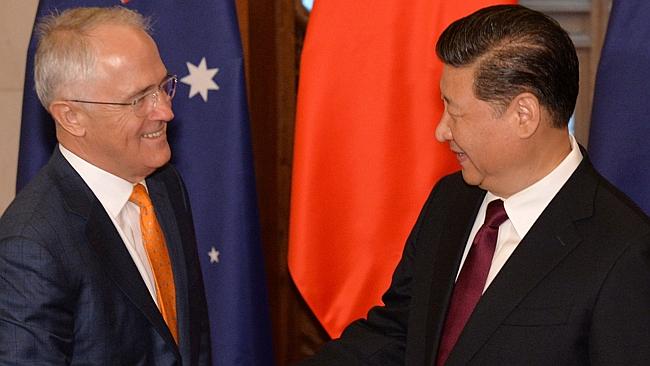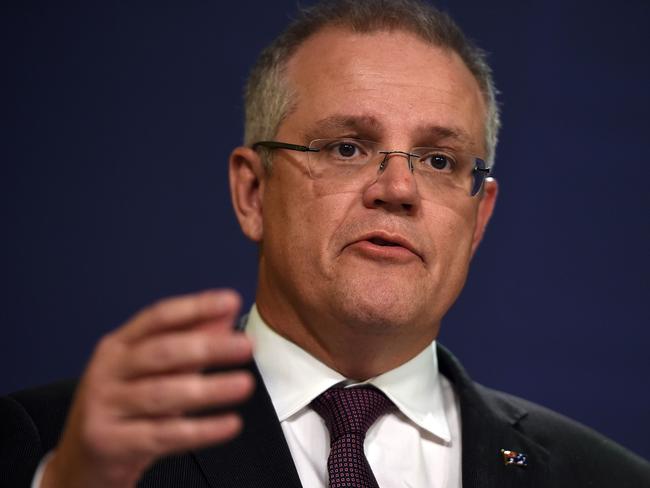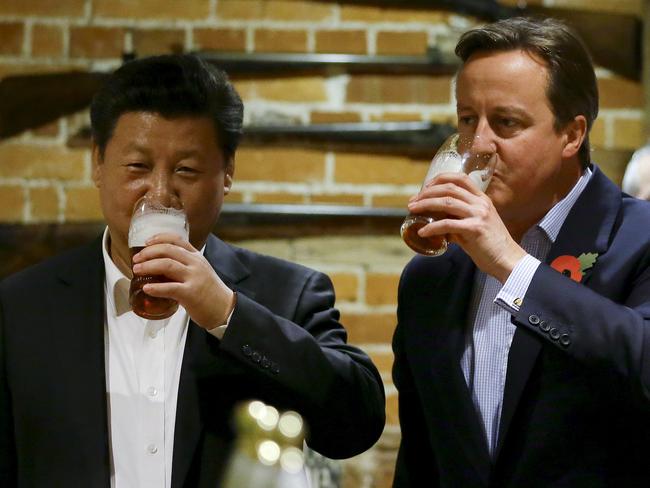Australian decision to block Chinese investment follows UK decision to review investment over security concerns
AUSTRALIA is not the only one to block Chinese investment on the basis of national security. But is slamming the door on billions prudent or paranoid?

AUSTRALIA risks slamming the door on billions of dollars worth of lucrative investments following the decision to block two Chinese companies investing in the NSW energy market, according to a leading expert in the field.
UTS deputy director of the Australia-China Relations Institute James Laurenceson said Treasurer Scott Morrison’s decision to block State Grid Corp and Hong Kong registered Cheung Kong Infrastructure from taking a 50.4% stake in Ausgrid in a 99-year lease is a “bad look” for the country.
He said he was “shocked” the $10 billion deal did not go ahead considering Chinese-owned companies already hold vast stakes in Victorian and South Australian energy assets.
“Back in March we know the Federal Goverment was consulted and ticked off on these bidders. They knew the structure of the deal, the nature of the assets and they ticked off on it so something has happened between March and August, we don’t know what it is,” he said.
“What’s changed, we’re not sure. There’s been the Federal Election, there was a rise in xenophobia. I’m not saying that is the case, let’s hope it’s not, but there has got to be some reason for the change.”
He said basing the Ausgrid preliminary decision on “national security” is the final nail in the coffin for the companies that formally have one week to respond.
“The companies involved have no idea what to respond to. I don’t see how they could come back with anything.
“We rely on foreign investment in Australia. Where are we going to get that money from? China is the only country stepping up to the plate. In the case of Ausgrid, three companies made the shortlist and all three of them are Chinese.”

The Australian decision made headlines around the world after Treasurer Scott Morrison said it would be contrary to “national security” but failed to elaborate on specifics.
It led to accusations of “economic populism” from Bob Carr and was slammed by Chinese news agency Xinhua as “Chinaphobia” that was comical at best and dangerous at worst.
Mr Morrison said the suggestion the deal was blocked in order to appease some senators was “complete crap” while Prime Minister Malcolm Turnbull backed up his security reasoning.
“This is a decision of considerable gravity, I can assure you, but it was taken based on the unequivocal advice of our national security agencies,” Mr Turnbull said.
It comes against concerns elsewhere over Chinese energy investments which have also run into trouble in the US and UK.
The UK government recently stepped in to delay a critical $30 billion nuclear power deal that was to be one third backed by another Chinese company, China General Nuclear Power, in conjunction with French Energy giant EDF.

The UK government is reportedly concerned about security issues surrounding Chinese ownership of such a critical piece of national infrastructure as well as the structure of the deal.
The last minute intervention prompted a warning from Chinese Ambassador to the UK Liu Xiaming who said the relationship between the two countries is at a “crucial historical juncture” and needed to be based on “mutual trust”.
China General Nuclear Power is also facing trouble in the US amid allegations engineer Allen Ho stole nuclear secrets in order to advance China’s own technology. If convicted he could face 10 years in prison and a $US250,000 fine for flouting laws designed to protect US national security.
The company claims it has always upheld the “relevant laws and regulations” and will be fully co-operating with the case.
For Mr Laurenceson the idea that China would invest billions in offshore assets in order to sabotage them is ludicrous. He said it would be economic “suicide” to do such a thing and cited Chinese investment in the Philippines despite disputes over the South China Sea as evidence business interests can remain isolated.
“The Chinese government is so decentralised, there are 31 provinces and 1.4 billion people. The idea that there is such a thing as ‘China Inc’ where you have a central government orchestrating a grand plan is just ridiculous,” he said.



